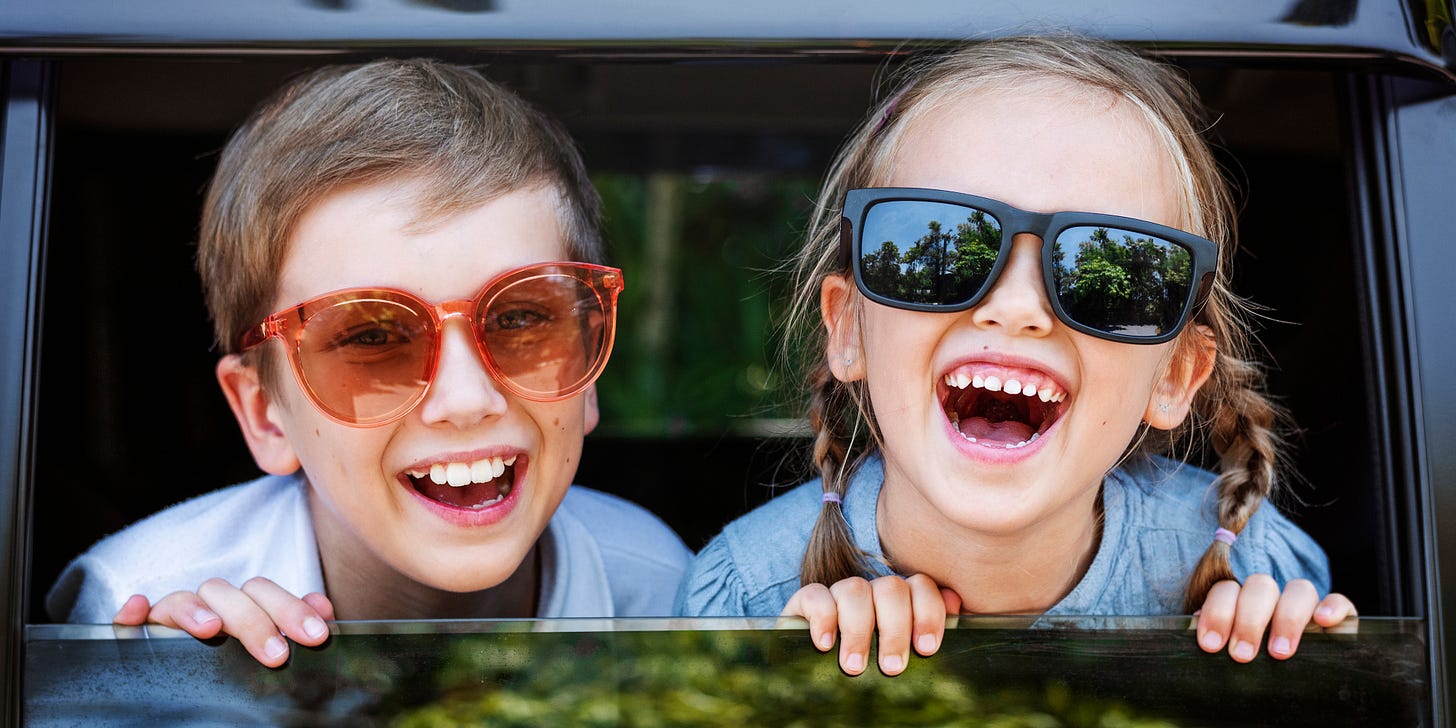Welcome to Is My Kid the Asshole?, a newsletter from science and parenting journalist Melinda Wenner Moyer, which you can read more about here. If you like it, please subscribe and/or share this post with someone else who would too.
Dear Is My Kid the Asshole,
We are on “vacation” with our kids right now, and it is hell. I was so excited for a week of relaxing by the beach, but my kids are having twice as many meltdowns as usual, they’re waking up at 5am, and they’re bickering constantly over stupid shit. I give up.
Best,
Where’s the Xanax
Dear Where’s the Xanax,
I feel your pain! I’m writing from Maine, where we are visiting my parents and also very much struggling with the reality of vacationing with tiny humans. (This one also involved my daughter’s birthday, and if your kids are anything like mine, birthdays are VERY EMOTIONAL.) I think that Emily W. King, a North Carolina-based child and adolescent psychologist, summarized it perfectly in an IGTV video she made a few weeks ago: For parents of young kids, she said, vacations aren’t really vacations — they’re more like family field trips. “If you think about it as a vacation, you probably will set yourself up for feeling disappointed,” she said. So true.
Look, some kids do great on holiday. My best friend has two kids under five, and she just spent three months on the road with them — camping, Airbnb-ing, keeping them up late — and they did fine (yes, I’m jealous). But other kids (my kids!) are not built that way. Some children “have a harder time with vacation, because just temperamentally, they're the kids who have a harder time with change, and transition,” explained Claire Lerner, a licensed clinical social worker and child development specialist when I called her for advice last week.
Often, the kids who struggle are ones who are prone to anxiety, because the upending of their daily routine fuels a fear of the unknown — if tomorrow isn’t going to be the way it always is, then maybe something scary is going to happen. These kids aren’t being difficult for the sake of being difficult: They’re feeling unsettled, and the way they show that is by being more emotional, clingy, demanding, and challenging. When we were in Vermont last month, my daughter woke me up every morning with “What are we doing today? We need to create a schedule RIGHT NOW GET OUT OF BED HURRY UP!”
But! There are things parents can do to make vacation more like vacation — or at least, less meltdown-y and difficult. Here are some tips I’ve gleaned from experts.





